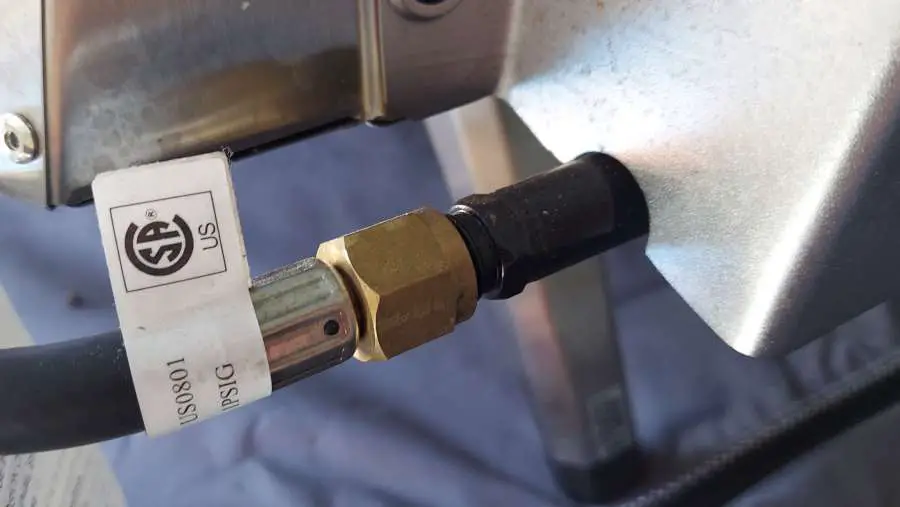Last Updated on May 23, 2024 by Dan Campbell
Looking to purchase a new generator but you’re not sure what fuel type to choose? Gasoline, Propane, Diesel, Hybrid? Depending on your situation, each fuel has advantages and disadvantages. So I have gone ahead and laid out a simple list of pros and cons for each type. Make sure to check out my other posts – Gasoline Generators: Pros and Cons, as well as Diesel Generators: Pros and Cons.
Propane-fueled generators burn very clean, have a long life with little maintenance required, and produce the lowest amount of noise when compared to gasoline or diesel. These qualities make them great for homes where the generator is in close proximity to the house, or there are kids and pets around. However, they do have some drawbacks including limited power output, less efficiency, and bulky fuel storage tanks. I think they’re great options for homes that have large propane tanks, as it gives you a large source of fuel and propane doesn’t have an expiration date like gasoline or diesel. So if you’re looking for an off-grid generator, and you plan on having a large propane tank, a propane generator is a great option.
Pros of Propane Generators
Maintenance
Propane generators have low maintenance cost because of how clean-burning propane fuel is. When compared to gasoline or diesel, propane is clean burning, meaning it does not let off nearly as much carbon monoxide when fully burned, and it cannot “spill”, allowing the generator to run much smoother. Typically, the dirtier the fuel the more maintenance is required to keep your generator in fully working condition. Propane generators also do not require special maintenance during winter months, whereas gasoline and diesel can give you more trouble.
Noise
Propane generators produce less noise than gasoline or diesel generators, which may be a decisive point if you’re purchasing a generator that will be in close proximity to your house, or for use when camping. It may seem like a small detail, but if you’ve ever been in a situation where you need to run a generator for multiple hours, let alone overnight, you know how much noise they can produce. Any amount of noise-dampening can be beneficial. Check out my article on how quiet propane generators are for more information.
Fuel Tank Size
There are several fuel tank sizes available for propane ranging from portable 20lb tanks all the way up to 1000-gallon permanent tanks. Depending on the size of your tank, a propane generator could easily outlast its gasoline/diesel counterpart. For example, if your home has a 500-gallon tank (which only contains 400 gallons of usable LPG, as there are fewer gallons of propane in a propane tank than the size) and you have a 7500-watt generator that consumes around 1.5 gallons/hour, you could run your generator nonstop for 250 hours. It’s also nice that you may already have a 20lb propane tank that you use for your BBQ or other appliances, so if you’re off in an RV that utilizes propane and you don’t want to carry a tank of gasoline or diesel, you can connect your propane tank.
Long Shelf Life
Propane gas does not deteriorate similar to gasoline or diesel, there is no expiration date, whereas gasoline can typically only be stored for 6 months. The tank that is holding the LPG will deteriorate quicker than the propane inside, so for long-term storage, LPG generators are a great option. For example, if you have a cabin that you want to keep a generator at, but don’t want to haul fuel back and forth, utilizing a generator that runs on propane you could theoretically store the propane there and use it whenever you need. And this paired with the flexibility of having large fuel tanks, you could have a large propane tank to have enough fuel for any difficult condition without the worry of needing to purchase gasoline or diesel.
Low Carbon Footprint
Propane is a clean burning fuel, meaning it does not emit nearly as much carbon when fully burned unlike gasoline or diesel. Its clean burning fuel makes it the best choice for use close to homes with children and pets that may be near the generator. Moreover, propane generators don’t produce ash like diesel ones, which aids in the reduction of maintenance required. Propane also cannot spill onto the ground, or seep into the earth. When released into the air, propane becomes gaseous and vaporizes.
Works in Extreme Cold
In extremely cold conditions, a propane generator is very reliable as the freezing point of propane is very low, unlike gasoline and diesel. In conditions that reach below freezing, gasoline and diesel generators can have a hard time starting and can also require additional maintenance such as using different oil, adjusting the choke, and special engine starting aerosols. It’s not until temperatures reach around -44 degrees Fahrenheit that you’ll begin having issues with propane. The largest concern with propane in freezing conditions is the regulator. If this freezes, it will not let propane through and will need to be defrosted.
Cons of Propane Generators
More Expensive Upfront Cost
Propane generators are reliable and require little maintenance over the course of their life, but their upfront cost can be higher than gasoline or diesel generators. You will not need to change out the generator’s oil as often as gasoline or diesel, but typically generators that can run on propane cost more than generators that only run on gasoline or diesel. You also need to already have a propane tank, or you will need to purchase one. Propane typically cost less than gasoline, however, due to the limited BTUs/gallon, it may end up costing more as a fuel source.
Produces Less Power
Propane generators produce less power or watts than gasoline or diesel generators. Propane generators typically produce between 10%-30% fewer watts than gasoline or diesel generators. That’s why the fuel economy of propane generators is also less. So if you’re on a site where you will have high wattage demand, such as a construction site, it may be more beneficial to choose a gasoline generator.
Less Fuel Efficient
Propane generators produce fewer BTUs per gallon of fuel, which makes them less fuel efficient compared to gasoline or diesel generators. A gallon of propane contains around 91,000 BTUs whereas gasoline is around 120,000 BTUs, and diesel at 140,000. Due to this, running a generator at 100% load will require significantly more fuel when using propane vs gasoline or diesel. However, it is typically easier to have larger tanks of propane than gasoline. A typical 20lb propane tank will run a 7500 watt generator for 3-4 hours at 50% load, whereas that same generator running gasoline with a fuel tank size of 6.6gal can run for 8-9 hours.
Requires Heavy Tanks
Propane generators demand heavy external tanks to store propane whereas most gasoline and diesel generators have internal reservoirs. Furthermore, if you’re planning on using a larger permanent tank you need an expert to install the plumbing between the tank and the generator.
Fuel is Not Always Accessible
Propane gas is usually not accessible at all gas stations and not distributed to households like natural gas lines are. In case of an emergency, it might be tough to find, unlike gasoline or diesel which are available almost everywhere at any time. Even if your local gas station has a propane tank cage, they may run out or have delivery issues. Depending on your location, gasoline may be an easier fuel source to obtain. However, most modern-day gasoline pumps require electricity to run. So if there is a major power outage, gasoline can even be difficult to acquire.
Final Remarks
Hopefully, with all this information you can make a more informed decision on choosing the fuel source for your generator. With this, I recommend propane generators if you’re looking for one that is going to connect to a large propane tank and will be used at home, or if you’re taking a small one with you in an RV or camping. If you’re using a generator on a job site and have high wattage requirements, I would go with gasoline or diesel. However, in the end, I always believe a duel-fuel generator is the best option as it gives you the pros of each fuel source without limiting you to one fuel type.
Have a great day and God Bless!




